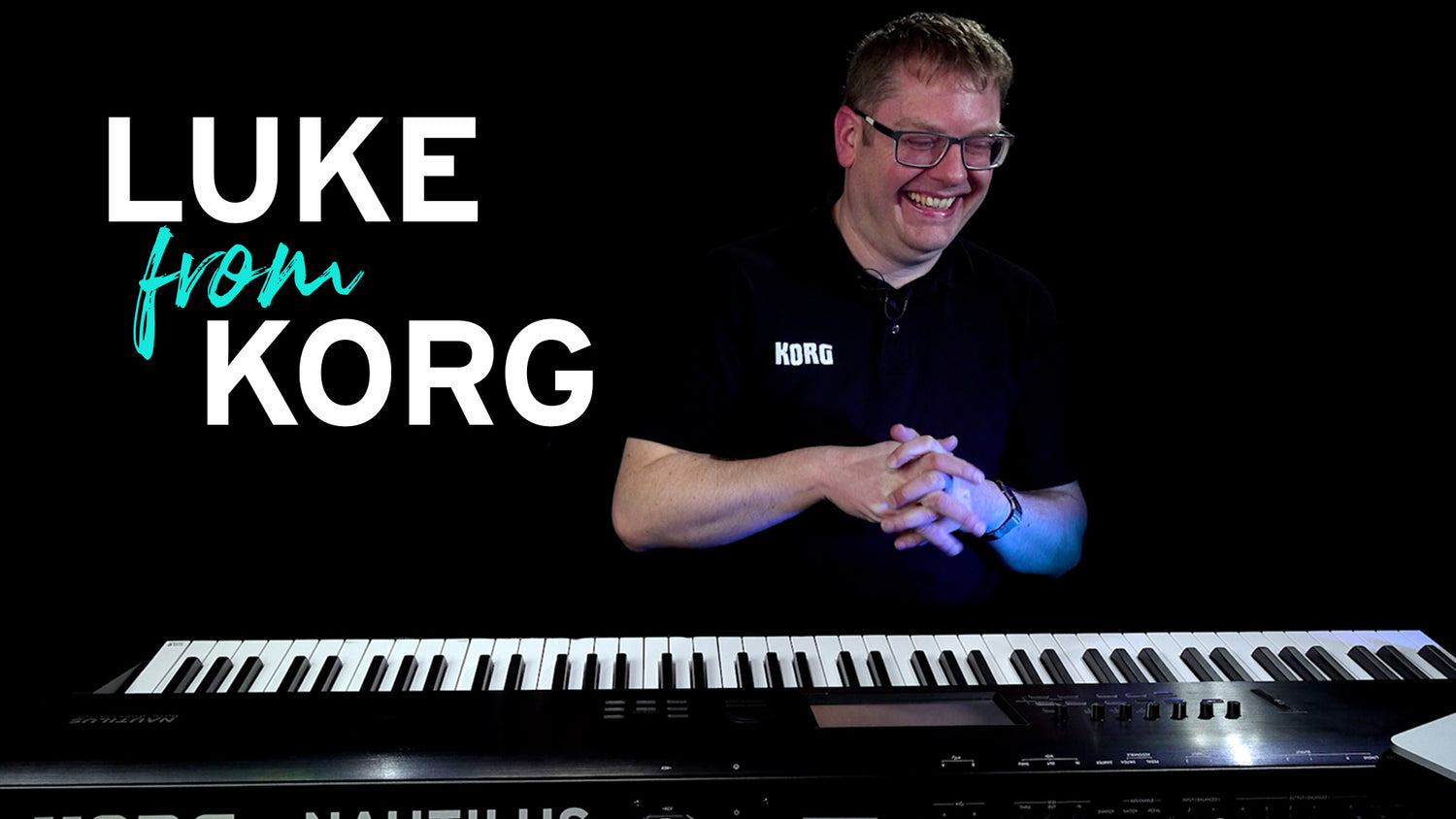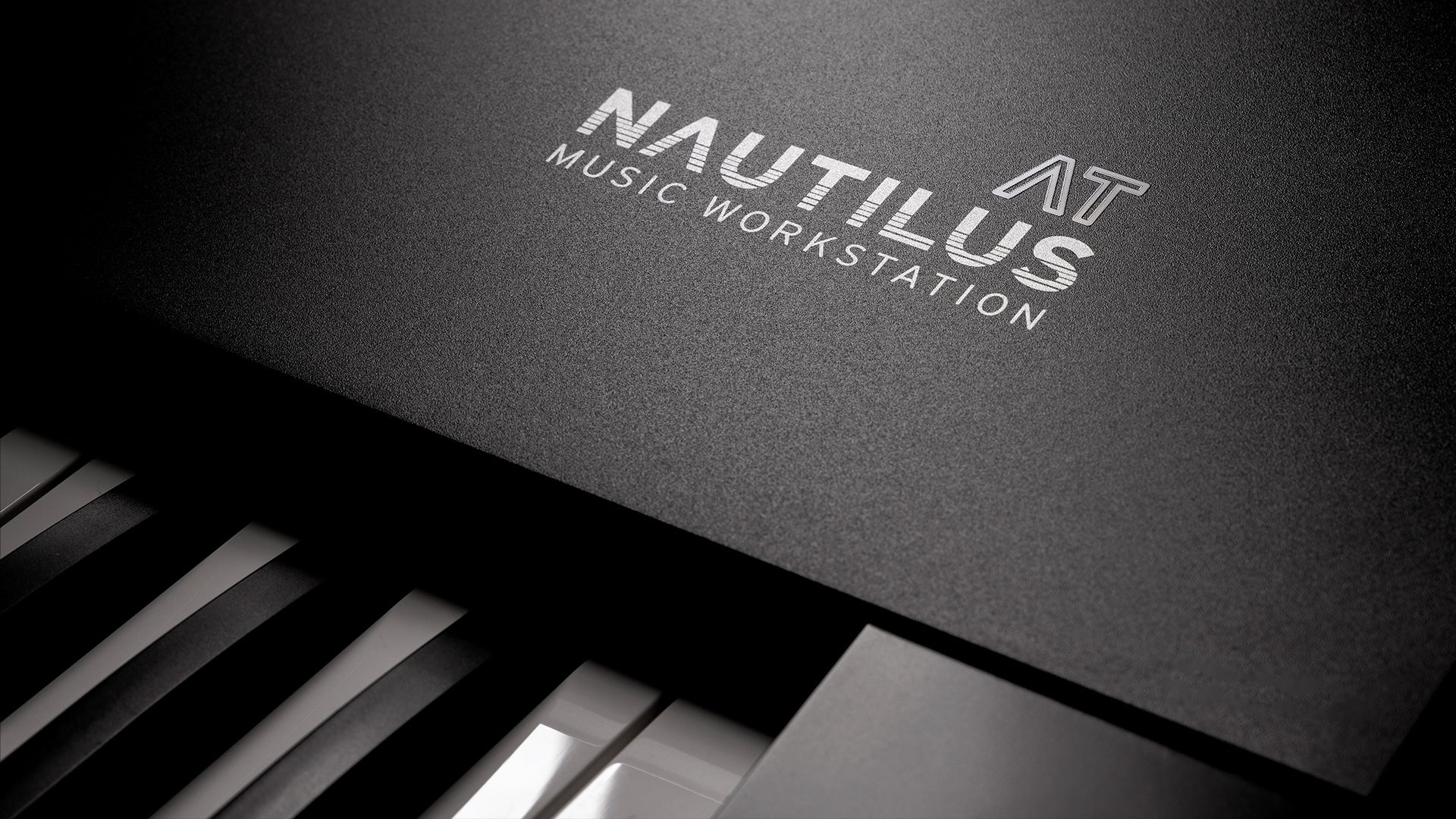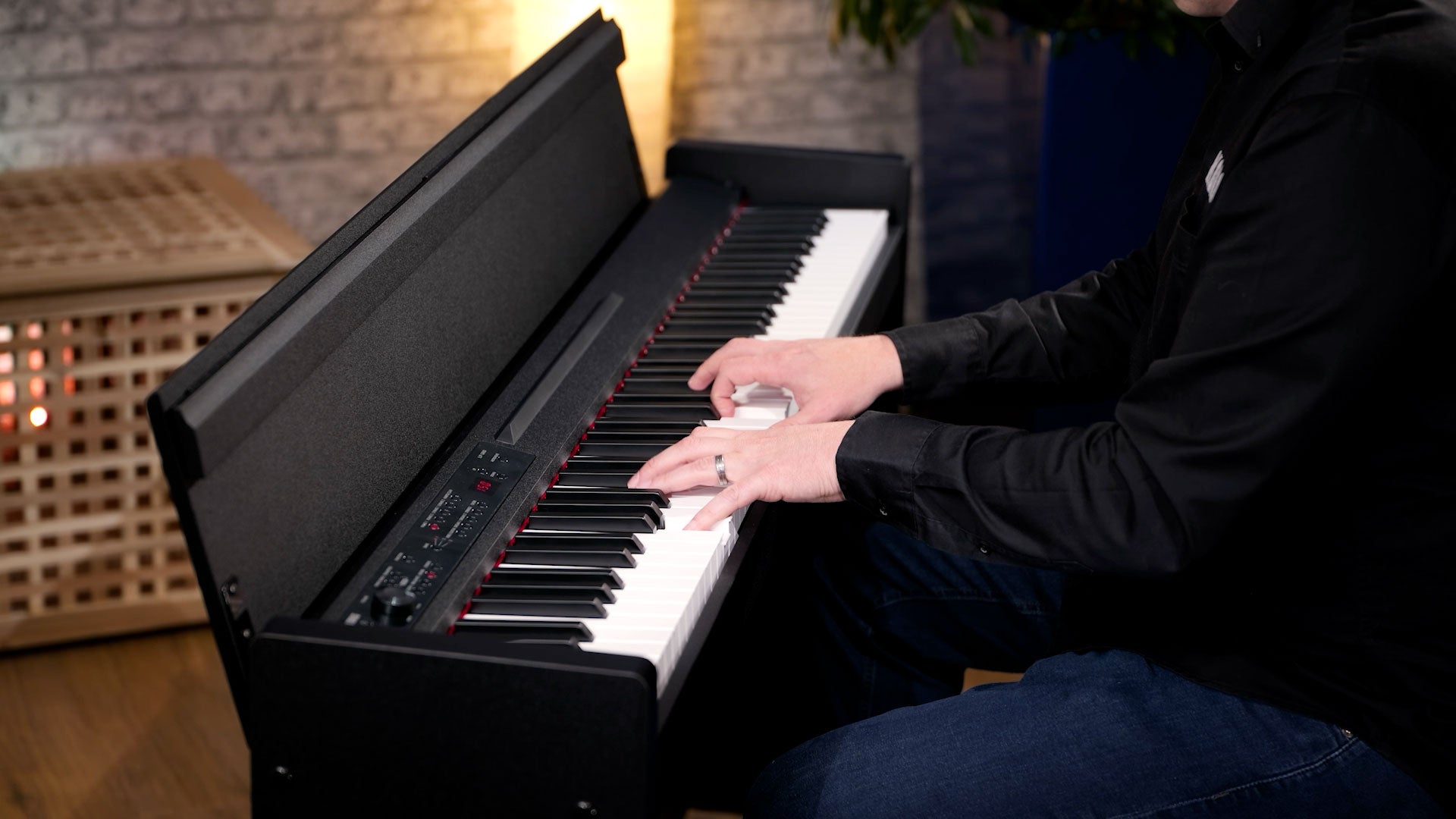Luke Edwards has been playing music for nearly as long as he’s been alive. It will come as no surprise to anyone familiar with his work that Korg’s brand ambassador and product specialist first sat in front of a piano at the age of five, the beginning of a passion for playing that would - following no shortage of encouragement from his teachers - one day lead him to the Royal College of Music.
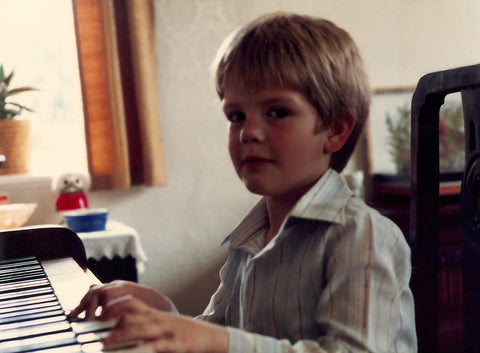
With his classical academic background and deep knowledge of sound design and orchestration - he also happens to know his way around the French Horn - he could quite easily have ended up in the Band of the Grenadier Guards. But it was a performance-oriented career of a slightly different nature that Luke was ultimately drawn to. A fascination with electronic music that took hold in his mid-teens, thanks in part to the synth-heavy 80s film scores by composers like Vince DiCola and the inspirational orchestral writing of John Williams, eventually became a profession, and it was in 2011 that Korg first approached Luke and asked him to come on board to demo a then brand new keyboard called the Kronos, one of our most iconic products and a workstation Luke firmly believes was an industry game-changer.
Some 12 years later and Luke’s unrivalled understanding of our products and how to make them really sing has seen him host countless demonstrations, both at in-person events and via the various video-sharing platforms that Korg embraces in the digital age we all live in. Whether he’s guiding us through the music evolution of the Batman theme, calling on good friend David Wise of Rare fame to recreate the song ‘Aquatic Ambience’ from his legendary Donkey Kong Country score on the Wavestate, or going in-depth on an FM synth like the Opsix, Luke makes our products feel personal and inspires our global audience to lean into their own creative curiosity.
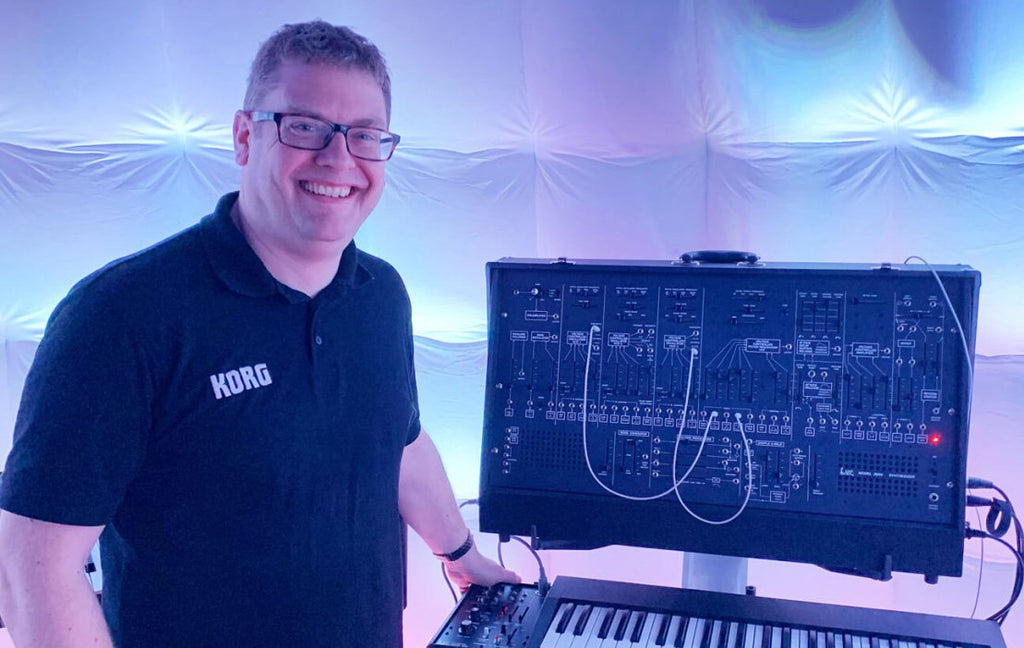
But after a lifetime in music, what drives him to keep telling the stories of these amazing instruments, and how much of what he does now does he credit to that (slightly less tired) five-year-old pianist? Here’s Korg UK’s Luke Edwards, in his own words.
Do you think learning piano as your first instrument helped you when you later became interested in electronics and synthesis?
I do think it's the best way [to learn]. I feel very lucky that I took that route, and that I did it in that order, because once you've got the grounding of the piano everything else becomes easier. And the piano is the best instrument to learn if you want to understand harmony and theory as well, because it's very visual. You can see the chord shapes and how keys relate to each other. It’s relatively easy to go from classical piano to synth, but it's very difficult to go the other way. In fact, I’d say it's impossible, because you'd almost have to go back to the basics again.
What drew you to Korg when the opportunity arose?
It has an amazing legacy, if not the best in the industry; but it never rests on its laurels and relies too much on that history, like a lot of other companies do. It’s constantly pushing the boundaries and being innovative. I was obviously very flattered that they came to me and I was always a massive Korg fan anyway. My first sound module was a Korg back in the day, when I was starting out with sequencing. I felt a sense of loyalty to my former employer as they gave me my first job out of university, but it felt like the right time, and I’m still here.
Has your role changed in your 12 years at the company?
It has changed a fair bit, because I'm not out on the road anywhere near as much as I was. At the beginning I was driving all the time, to lots of different music dealers, doing lots of training, and loads of in-store demos. But now it's much more video-based because the way that we connect with our users has changed so much. It’s more effective for me now to do product demos as a video because we can just reach so many more people at once and at a time that suits them.
Has the shift towards digital content made the job easier?
It’s great because it allows us to get almost real-time feedback. Before, you’d put a product out and have to wait a bit before asking our retailers what they thought. And you’d have to wait for trade shows to hear the response from consumers. Nowadays, on the day of launch you get a massive trail of comments that you can see straight away. I’m not always sure if that’s good or bad, but it means we can react quicker if there is a problem, such as a little bug that needs addressing in the software. Also, in a post-COVID world, fewer people are walking into music shops anymore to check out gear, as they can get really good content online, and often make their buying decision there.
But you still enjoy human interaction when it happens?
Definitely. There's still nothing better than doing a one-on-one demo with someone and getting a face-to-face reaction. Seeing them being amazed, you can’t beat that. As good as online is now, you can't replicate that feeling as a presenter. It's always great to meet people on the road, and it’s particularly good for Korg because we’re quite a popular brand, so we get a lot of nice feedback in person as well.
What makes a good product demonstrator?
Having the technical knowledge goes without saying; you can't do the job without having that. For me, what elevates a good product demonstration to a great one is the music in the demo. Getting your point across in a musical way, and always bringing context to it. Whatever feature I’m explaining, however technical it is, I always try to explain and demonstrate a musical application for that feature. The music I use has always been a massive win for me in terms of my demos, because as soon as people hear something they like, they're immediately more engaged. They’re thinking “I want to do that.” I’m almost selling them that dream.
You have perfect pitch. That must be a boon in your job.
If I’m listening to a piece of music and trying to extrapolate the parts, it really helps. I’ve got a really finely-tuned ear when it comes to pitch and harmony, so I can pick out different parts of the orchestration, identify what instrument it is and what pitch they’re playing at. It’s also very useful for sound design and tuning synths. Bit of a curse too, though; I can’t watch shows like The X Factor. It’s just torture.
Is music an all-consuming passion for you?
It’s really hard to turn off. From an inspirational point of view I’m always looking for new ideas for demos and for sounds, and because I make a lot of the sounds that go into the instruments, often I’ll listen to see if people have used my sounds. It’s always cool when you realise that someone has used one of your presets in a record, and that has happened a few times - and it’s even more satisfying when it’s been used in the way I intended.
What are your favourite Korg products ever?
The first one would be the Kronos. It’s definitely a personal pick as it was the product that brought me to the company, but also it was the industry standard workstation that pro keyboard players turned to for a good 10 years. A more recent pick would be the Wavestate SE, which is a digital synth that pulls on our legacy by almost being a Korg Wavestation reimagined for today’s production. It’s just an inspirational instrument and every time I play it I’m blown away. Korg have always been very good at their presets, even going back to when the Korg M1 launched in 1988 with that first Universe patch, which was a complete revelation. The Wavestate carries the DNA of those synths from back in the day - the ones you could walk up to and just be totally transfixed by the sounds.
Who inspires you?
John Willams is an obvious one. The likes of Star Wars, Superman, ET and Raiders of the Lost Ark were all films that came out when I was young, and I still love the scores. Hans Zimmer too, because his sound design is awesome, and he keeps reinventing himself in his scores. Take his Man of Steel score; some of the stuff he’s doing in there from a sound design perspective is just unbelievable. But I’m also just in awe of the people who design and make the products for us, and I’m just happy to be a small part of that.

